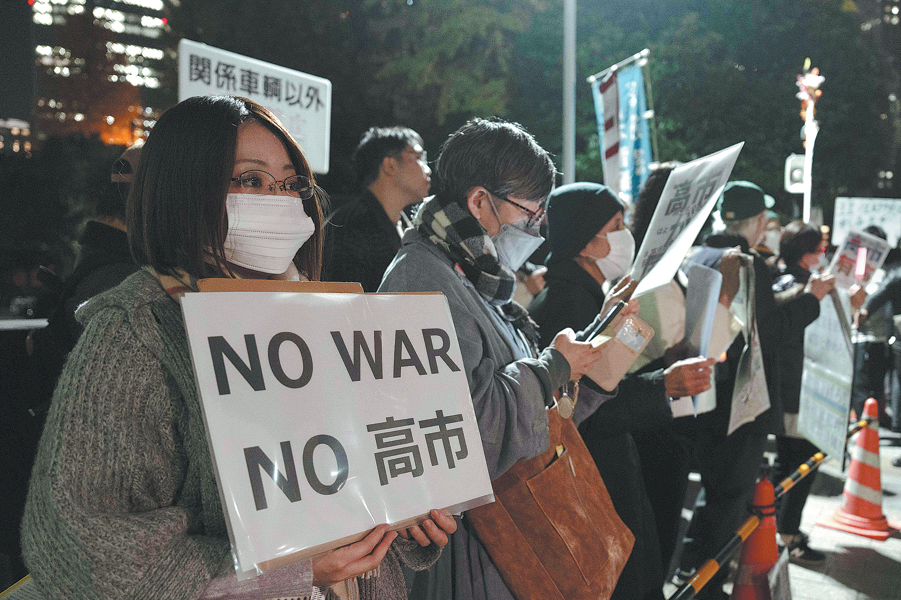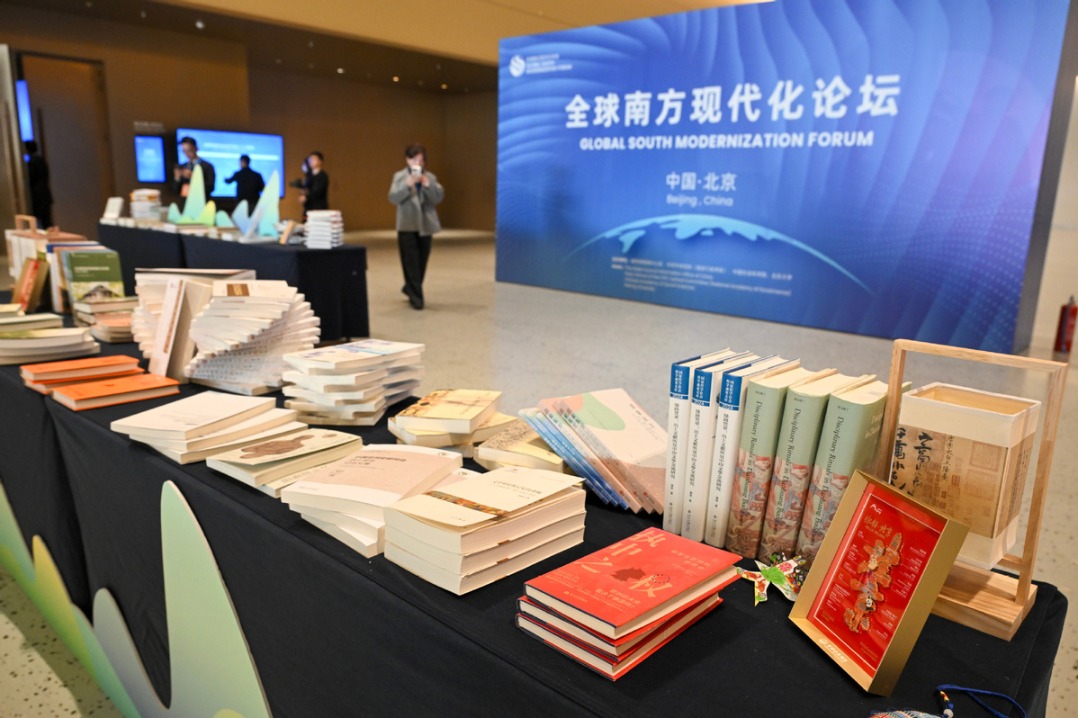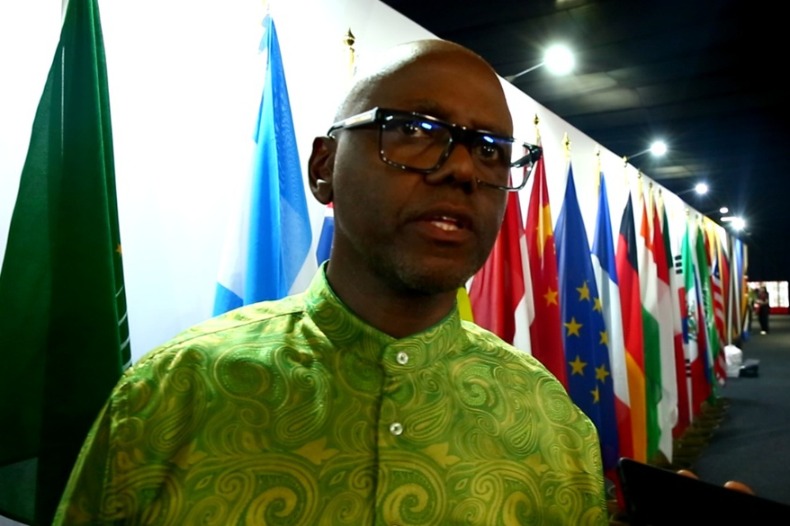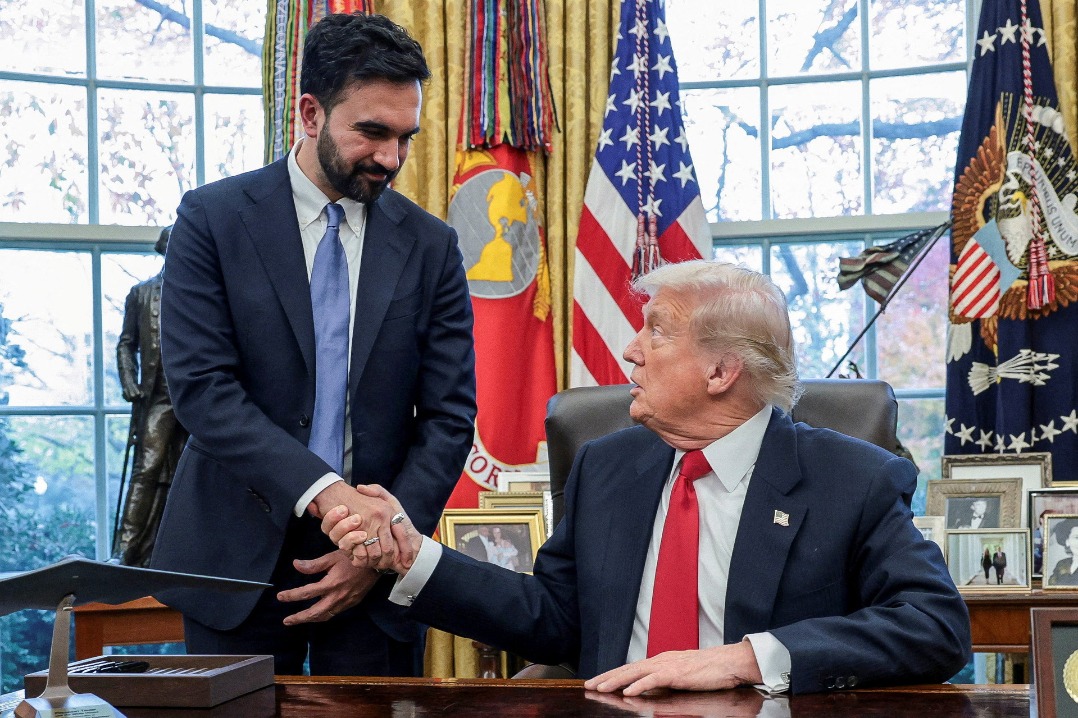Japan PM's nuclear proposal draws flak
Experts warn against plan as concerns intensify over security and obligations






Japan's Prime Minister Sanae Takaichi's suggestion that the country consider revising its long-standing Three Non-Nuclear Principles has drawn widespread criticism, with experts saying that such a move neither aligns with Japan's security realities nor conforms to its historical responsibility to uphold peace.
The principles — not possessing, not producing and not allowing the introduction of nuclear weapons into Japanese territory — were first declared in 1967 by prime minister Eisaku Sato and have since been regarded as a national credo.
In 2022, the National Security Strategy of Japan, one of three security documents approved by the Cabinet, stated, "The basic policy of adhering to the Three Non-Nuclear Principles will remain unchanged in the future."
However, Japanese media reported that the ruling Liberal Democratic Party began discussions on Tuesday on revising the key security documents, including the National Security Strategy.
Kyodo News quoted government sources as saying that Takaichi is considering reviewing the third principle, which prohibits nuclear weapons from entering Japanese territory.
The planned revisions are also expected to address defense spending, including raising expenditures above 2 percent of GDP.
Hiroshi Shiratori, a professor of political science at Hosei University in Tokyo, told China Daily that the move to revise the Three Non-Nuclear Principles represents a clear rightward shift, diverging from the mainstream wishes of ordinary citizens.
These principles hold vital importance for Japan, the only country to have experienced nuclear attacks in war, in Hiroshima and Nagasaki, he said. Nuclear weapons are inherently offensive rather than defensive, which directly contradicts Japan's long-standing pacifist principles, he added.
Petition submitted
Nihon Hidankyo, an organization representing survivors of the Hiroshima and Nagasaki bombings, has strongly opposed any move to revise the Three Non-Nuclear Principles. Public broadcaster NHK reported that the group has submitted a petition with nearly 3.5 million signatures, urging the government to join the Treaty on the Prohibition of Nuclear Weapons.
According to Japanese media, former prime minister Fumio Kishida recently said in Hiroshima that he has consistently upheld the Three Non-Nuclear Principles as a national policy since taking office in 2021, and that his position has never wavered.
Yoshihiko Noda, another former prime minister, said in an interview in Nagasaki that these principles are a national policy of Japan, highlighting growing public anxiety over Takaichi's Cabinet.
The Nikkei newspaper cited critics as saying any declaration that United States nuclear weapons will be deployed in Japan could put the country in the cross-hairs of preemptive strikes.
Ukeru Magosaki, director of the East Asian Community Institute and a former senior official at Japan's Foreign Ministry, told China Daily that Japan's decision to deploy missiles in Okinawa and other areas targeting China has significantly increased its own military risk.
He compared the current situation to the Cold War-era US strategy of deploying nuclear weapons in Germany, which shifted risks onto Europe while enabling Washington to secure strategic advantages. "Essentially, this is Japan making sacrifices for the strategic interests of the US," Magosaki said.
If Japan were to acquire nuclear weapons or allow US nuclear arms on its soil, the neighboring countries would be compelled to reassess their nuclear deterrence posture, ironically placing Japan in even greater danger, he said.
In response to Takaichi's recent hawkish remarks on Taiwan, China's permanent representative to the United Nations, Fu Cong, submitted a letter to UN Secretary-General Antonio Guterres on Friday.
Fu called the remarks "gravely erroneous and extremely dangerous", adding they carry "a profoundly malicious nature and impact".
In addition to reaffirming China's firm resolve to safeguard its sovereignty and territorial integrity, Fu urged Japan to "deeply reflect on its historical crimes". As a country defeated in World War II, Japan "must fully honor its political commitment on the Taiwan question, immediately cease provocations, retract its erroneous remarks and stop crossing the line", he said.
Contact the writers at houjunjie@chinadaily.com.cn




























